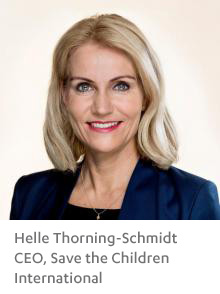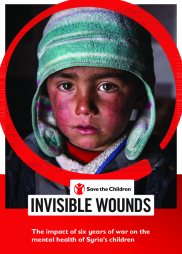Losing out on learning: J-WEL and Save the Children collaborate to tackle refugee education in the Middle East

The Abdul Latif Jameel World Education Lab (J-WEL) and Save the Children have partnered in an attempt to deliver a scalable and adaptable program addressing teacher wellbeing and teaching quality in crisis settings.
Initially, the two organizations will work together in Jordan, one of several countries across the Middle East where the education system is strained following the Syria conflict. They aim to integrate social and emotional wellbeing into teacher professional development programs, strengthen the capacity of teachers, and create a pilot program that can be used, adapted and scaled in other emergency contexts.
 |
Helle Thorning-Schmidt, CEO of Save the Children International, said: “Jordan has shown great compassion by offering refuge to hundreds of thousands of children who have fled the brutal war in Syria. Many of these children have seen and experienced things that no child ever should.
What they need most is to return to the normality that education and a good teacher can offer. Our programme will aim to help teachers support these children so they can recover from the invisible wounds of war, and get the quality education that every child should have.”
|
Almost six million people have fled Syria since 2011. More than a million now reside in Jordan, where teachers have worked exceptionally hard to maintain an internationally recognized education system.
Hassan Jameel, President of Community Jameel Saudi Arabia, said: “Community Jameel sees education as a tool for people to improve their lives and the lives of those around them. This is what perfectly ties the work of Community Jameel, J-WEL and Save the Children.
“We recognise that teachers need compassion and empathy to support children with their emotional development – especially in a crisis setting. As such, improving quality teaching practices and student learning, through a blended approach to teacher professional development, is fundamental.”
| Save the Children’s Invisible Wounds report – the largest study of its kind conducted during the course of the Syria civil war – revealed a terrifying mental health crisis among Syrian children. Children they spoke to described increases in self-harm, suicide attempts, bedwetting, speech problems and aggressive or withdrawn behaviour. Mental health experts have also warned that Syrian children are showing signs of ‘toxic stress’, which can lead to developmental issues.
The recent collaboration was announced during a high-level meeting that took place during the United Nations General Assembly, calling on world leaders to accelerate and improve long-standing commitments to deliver on education for refugees. |
 |




 Added to press kit
Added to press kit


